Who has inspired you as a mentor?
Faculty from TCU’s eight schools and colleges weigh in.
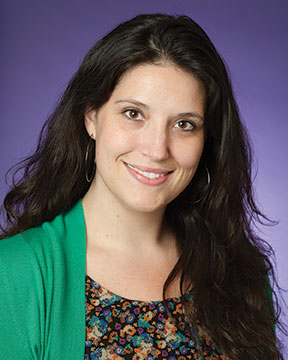
Marlo Jeffries.
Who has inspired you as a mentor?
Faculty from TCU’s eight schools and colleges weigh in.
Marlo Jeffries
Assistant professor of biology in the College of Science & Engineering
My earliest mentor was my grandfather. He loved growing vegetables, and as a kid, I would spend my summers poking around in his garden, picking tomatoes and digging in the dirt. We would talk about the interactions between the plants, soil and insects, and he would ask me “what if” questions. What would happen if there weren’t worms? What if there were more ladybugs? For a 6-year-old, these were tough questions to answer, but they taught me to think outside of the box and to seek connections between ideas. As a researcher, I utilize these skills daily, and as an educator, I frequently find myself channeling my grandfather and asking my students “what if” questions in an effort to promote their critical reasoning skills.
Kimberly Owczarski
Assistant professor of film, television and digital media in the Bob Schieffer College of Communication
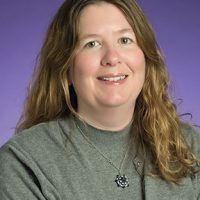
Kim Owczarski.
Dr. Charles Ramírez-Berg has won nearly every teaching award at my alma mater, the University of Texas at Austin. As his teaching assistant, I witnessed how he translated his love for cinema into valuable learning experiences for students, pushing them to view unconventional types of cinema and challenging their thinking about movies and moviemaking. He re-framed familiar films in new ways that encouraged students to engage in repeated viewing. From him, I learned the importance of discussing texts not only formally in class but also informally as part of conversations with students. Listening is as important an aspect of teaching as presenting information, and he emphasized that a teacher’s role was not unidirectional.
Melanie Harris
Associate professor of religion in AddRan College of Liberal Arts

Melanie Harris.
A mentor is a lifeline. For teachers and scholars, good mentoring can make the difference between a solid career and a tepid one. Traditional mentoring is based on an apprentice model where the teacher leads and the learner listens. Increasingly however, mentoring programs such as the National Center for Faculty Development and Diversity are shifting models. Good mentors know that the best mentoring is collegial and communal. It is a mutually enhancing process of learning together based on principles of genuine collegiality, courage, scholarly engagement and deep respect. One of my favorite mentors is Dr. Andrew Schoolmaster, Dean of AddRan College at TCU. Committed to building an intellectual community where all can thrive, Andy’s collaborative leadership style sets the frame for good mentoring. Rather that working from a potentially hierarchal frame, a collaborative model of mentoring invites wisdom and knowledge from a council of mentors. On this path there is no expectation to become a “mini-me.” Rather, we are all encouraged to work from our own strengths and, with humility, celebrate the grace and strengths of others. Sharing strengths. This is real leadership. Working collaboratively. This is the foundation for good mentoring.
Juan Carlos Sola-Corbacho
Lecturer in the John V. Roach Honors College
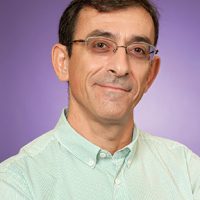
Juan Carlos Sola-Corbacho.
Spanish dictator Francisco Franco died a few years before I began college at the Universidad Complutense de Madrid. Nevertheless, most professors had obtained their degrees and positions during the dictatorship. It marked the contents of their courses as well as the pedagogical methods they used in class. In my third year at the Complutense, I took a Latin American History class with one of the youngest professors on campus: Dr. Pedro Perez Herrero. His class was just the opposite of what I had experienced previously: 90 minutes that seemed like 90 seconds. He promoted discussion, creating a very respectful atmosphere (in both directions) in the classroom. In his class, we made presentations, and we did not take exams. Among many more things, Perez Herrero taught us to consider history a very useful tool to understand our present. No doubt, history and teaching are my passions. Perez Herrero, who became my dissertation advisor, had a high degree of responsibility in creating those passions.
Michelle Bauml
Assistant professor of early childhood and social studies education in the College of Education
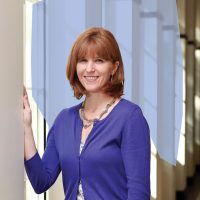
Michelle Bauml. (photo by Carolyn Cruz)
Two of the most inspirational teachers I’ve ever known are Dr. Lisa Goldstein and Dr. Sherry Field. These remarkable women co-chaired my dissertation committee and mentored me through the process of becoming a teacher-scholar. From Goldstein, I learned strategies for challenging students intellectually and ways to integrate humor into teaching. Goldstein also taught me to have a healthy attitude about the turbulent process of publishing research. For example, if a journal editor rejects a manuscript for publication, one should not take it personally. Instead, one should learn from the feedback, revise the manuscript and submit it to another journal. Field taught me the value of professional collaboration, of surrounding ourselves with people whose strengths complement our own. Field also taught, by example, what it means to be a servant leader.
William C. Moncrief
Charles F. and Alann P. Bedford professor of international business in the Neeley School of Business
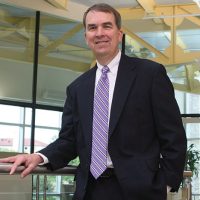
William C. Moncrief.
I have been blessed with multiple mentors at various points in my life and career, but there is one mentor that I always think of first — Dr. Ronald Bush. He was a marketing professor at Ole Miss, where I got my undergraduate degree and my MBA. I was fortunate to have him as a professor in both programs but even more fortunate to work for him as a graduate assistant. Ron, for whatever reason, saw potential in me and was leaving for Louisiana State University the following fall. He strongly encouraged me to go with him as a PhD student. I finally agreed to go, and my life would forever be changed. I owe him my career, and his guidance was essential for my development. God puts people in your life, and Ron Bush was there for me. I hope that I’ve been there for TCU students.
Suzy Lockwood
Associate dean for nursing and director of the Center for Oncology Education and Research in the Harris College of Nursing & Health Sciences
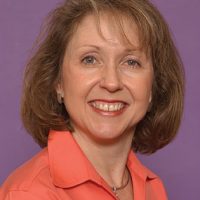
Suzy Lockwood.
I have come to realize that I have been blessed to have many mentors. Probably like most people, I didn’t always recognize the person as a “mentor” at the time but looking back I recognize now that they saw something in me that I was either “too young” or “too blind” to see. Picking just one was hard, but it seems only appropriate in this setting to name someone that was not just a mentor to me but too many others, [the late] Dr. Paulette Burns. Not a day goes by that her wisdom and advice does not guide the decisions that I seek to make not just for myself but also for the individuals that I have the privilege to work with. Her ability to communicate respect and trust to those she worked with was priceless. She modeled the value of listening, the importance of recognition of others contributions, encouraging colleagues towards growth that they might not see in themselves, and having fun. On two occasions, Paulette encouraged me to take a path I was not “looking to take” because she saw something in me that I could not see. I have had fulfilling opportunities because she “inspired” me. Although she is no longer with us, she remains my inspiration and I hope to mentor others as she did me.
Amanda Allison
Assistant professor of art and coordinator of art education in the College of Fine Arts
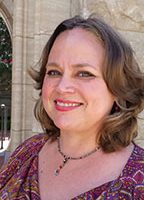
Amanda Allison.
My most recent mentor is Dr. Sarah Robbins, last year’s acting dean of the TCU Honors College. I noticed her strong commitment to the college and I asked her about it. She told me that she believed she should give her best efforts to the programs in which she believes. This caused me to look differently at TCU. I made sure that every subsequent project I undertook aligned with my values, goals and talents and enhanced the mission and liveliness of TCU and Fort Worth culture. The take-away: Mentors can appear at any time in our lives. Notice what you “notice” when you meet an outstanding person. Ask the questions that pique your interest and put the answers into practice.

Your comments are welcome
Comments
Related reading:
Features
Our Marching Band, the Pride of TCU
In its 111th year, the band still practices hard, relies on teamwork and performs with passion.
Features
Kelubia Mabatah’s Comeback
Former TCU tennis player forges on after a traumatic brain injury.